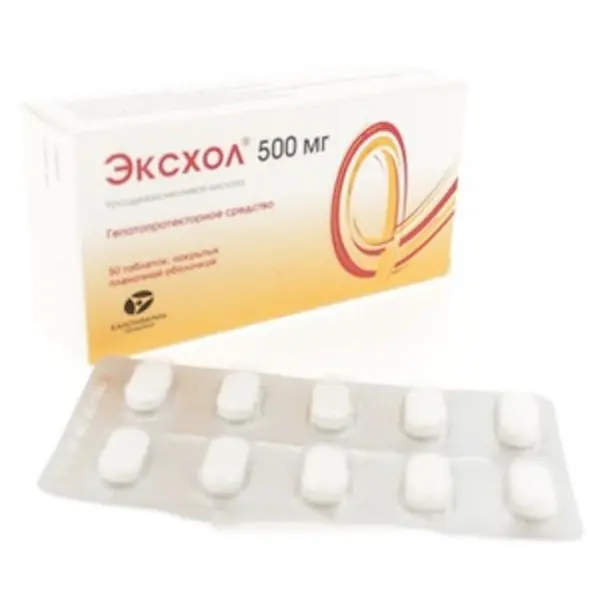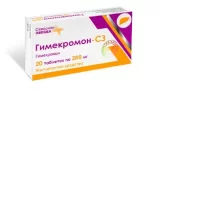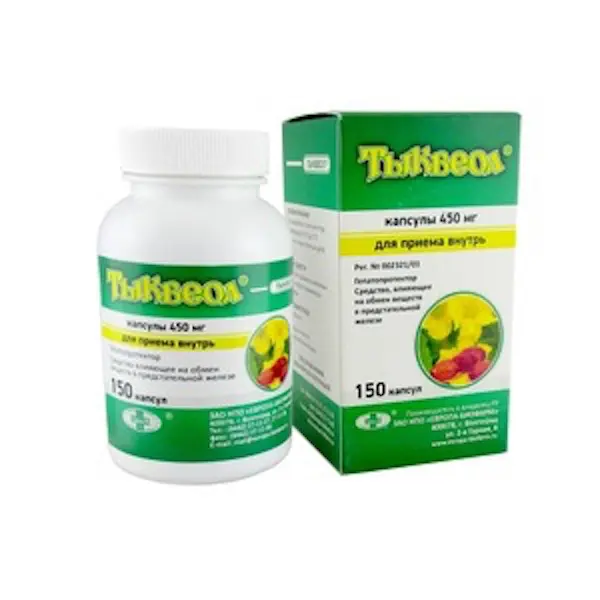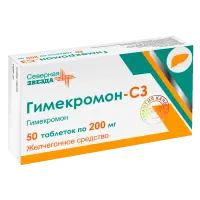Description
Exhol Pharmacodynamics
Hepatoprotective drug, has a choleretic effect. Reduces cholesterol synthesis in the liver, its absorption in the intestine and its concentration in bile, increases cholesterol solubility in the biliary system, stimulates bile formation and excretion. It decreases bile lithogenicity and increases bile acids content; it causes intensification of gastric and pancreatic secretion, increases lipase activity and has hypoglycemic effect. Causes partial or complete dissolution of cholesterol stones in enteral administration, reduces bile saturation with cholesterol, which promotes mobilization of cholesterol from gallstones.
Exhol has an immunomodulatory effect, affects immunological reactions in the liver: it reduces the expression of some antigens on the membrane of hepatocytes, affects the number of T lymphocytes. interleukin-2 formation, reduces the number of eosinophils.
Pediatric population.
Cystic fibrosis (cystic fibrosis}
According to clinical reports, there is a long history (up to 10 years or more) of treatment with ursodeoxycholic acid in pediatric patients with hepatobiliary disease associated with cystic fibrosis (CFAHD). There is evidence that therapy with ursodeoxycholic acid can decrease bile duct proliferation, slow down the development of lesions detected by histological examination, and even promote reversal of hepatobiliary changes if therapy is started at early stages of CFAHD. In order to optimize the effectiveness of treatment, ursodeoxycholic acid therapy should be started as early as possible after the diagnosis of CFAHD.
Indications
Cholesterol gallstones dissolution, biliary reflux gastritis, primary biliary cirrhosis in the absence of decompensation signs, chronic hepatitis of various genesis, primary sclerosing cholangitis, cystic fibrosis, nonalcoholic steatohepatitis, alcoholic liver disease, biliary dyskinesia.
Contraindications
X-ray-positive (high-calcium) gallstones; impaired gallbladder contractility, bile duct obstruction (obstruction of the common bile duct or vesicular duct); frequent episodes of biliary colic; acute inflammatory diseases of the gallbladder and bile ducts; decompensated cirrhosis of the liver; expressed hepatic and/or renal insufficiency; hypersensitivity to the drug components or other bile acids, children under 3 years old (for solid dosage forms).
Pediatric population.
Unsuccessfully performed portoepterostomy or cases of absence of restoration of normal bile flow in children with biliary tract atresia.
In children under 3 years old, as well as in patients with difficulty in swallowing solid dosage forms, it is recommended to use preparations of ursodeoxycholic acid in form of suspension.
Dosage and administration
- For patients, who cannot swallow Exhol film-coated tablets 500 mg or with body weight less than 47 kg it is recommended to use ursodeoxycholic acid in capsules or suspension. Tablets should be taken without chewing, with fluids. They should be taken regularly.
- Dissolving cholesterol gallstones
- The recommended dose is 10 mg of ursodeoxycholic acid per 1 kg of body weight per day, which corresponds to:
- Up to 60 kg 1 tablet
- 61 – 80 kg 1 1/2 tablet
- 81-100 kg 2 tablets
- Over 100 kg 21/2 tablets
- It usually takes 6-24 months to dissolve gallstones. If the size of the stones does not decrease after 12 months of treatment, treatment should be discontinued.
- The effectiveness of treatment should be evaluated every 6 months with ultrasound or radiography. In an interim follow-up evaluation, it should be assessed whether the stones have calcified since then. If stones have calcified, treatment should be discontinued.
- Treatment of biliary reflux gastritis
- Take 250 mg (1/2 tablet) daily in the evening before going to bed.
- The course of treatment from 10-14 days to 6 months, if necessary – up to 2 years.
- Treatment of primary biliary cirrhosis
- Daily dose depends on body weight and varies from 11/2 to 31/2 tablets (14 ± 2 mg of ursodeoxycholic acid per 1 kg of body weight). After improvement of liver functional parameters, it is possible to switch to a single daily dose in the evening
- Body weight (kg)
- Daily dose (mg/kg)
- Exhol film-coated tablets, 500 mg
- during the first 3 months
- Thereafter
- morning
- midday
- evening
- evening (single intake)
- 47-62
- 112-16
- 1/2
- 1/2
- 1/2
- 11/2
- 63-78
- 13-16
- 1/2
- 1/2
- 1
- 2
- 79-93
- 13-16
- 1/2
- 1
- 1
- 2 1/2
- 94-109
- 14-16
- 1
- 1
- 1
- 3
- over 110
- –
- 1
- 1
- 11/2
- 3 1/2
- Use of ursodeoxycholic acid to treat primary biliary cirrhosis may continue indefinitely. In patients with primary biliary cirrhosis in rare cases clinical symptoms may worsen at the beginning of treatment, for example, itching may increase. In this case, treatment should be continued by taking 1/2 tablet daily, then the dose should be gradually increased (increasing the daily dose weekly by 1/2 tablet) until the recommended dosing regimen is achieved again.
- Symptomatic treatment of chronic hepatitis of different genesis – daily dose 10-15 mg/kg in 2-3 doses. Duration of treatment – 6-12 months or more.
- Primary sclerosing cholangitis – daily dose is 12-15 mg/kg; if necessary, the dose may be increased up to 20 mg/kg in 2-3 doses. Duration of therapy ranges from 6 months to several years (see sect.: “Cautions”).
- Cystic fibrosis (as part of complex therapy) – daily dose 20 mg/kg/day in 2-3 doses, with further increase to 30 mg/kg/day if necessary.
- Body weight (kg) Daily dose (mg/kg body weight) Exhol film-coated tablets 500 mg morning noon evening
- 20-29 17-25 1/2 – 1/2
- 30-39 19-25 1/2 1/2 M
- 40-49 20-25 1/2 1/2 1
- 50-59 21-25 1/2 1 1
- 60-69 22-25 1 1 1
- 70-79 22-25 1 1 11/2
- 80-89 22-25 1 1 1/2 11/2
- 90-99 23-25 1 1/2 11/2 11/2
- 100-109 23-25 11/211/2 2
- >110 11/2 2 2 2
- Nonalcoholic steatohepatitis – average daily dose is 10-15 mg/kg in 2-3 doses. The duration of therapy is 6-12 months or more.
- Alcoholic liver disease – average daily dose is 10-15 mg/kg in 2-3 doses. The duration of therapy is 6-12 months or more.
- Biliary dyskinesia – average daily dose is 10 mg/kg in 2 doses for 2 weeks to 2 months. If necessary, it is recommended to repeat the treatment course.





